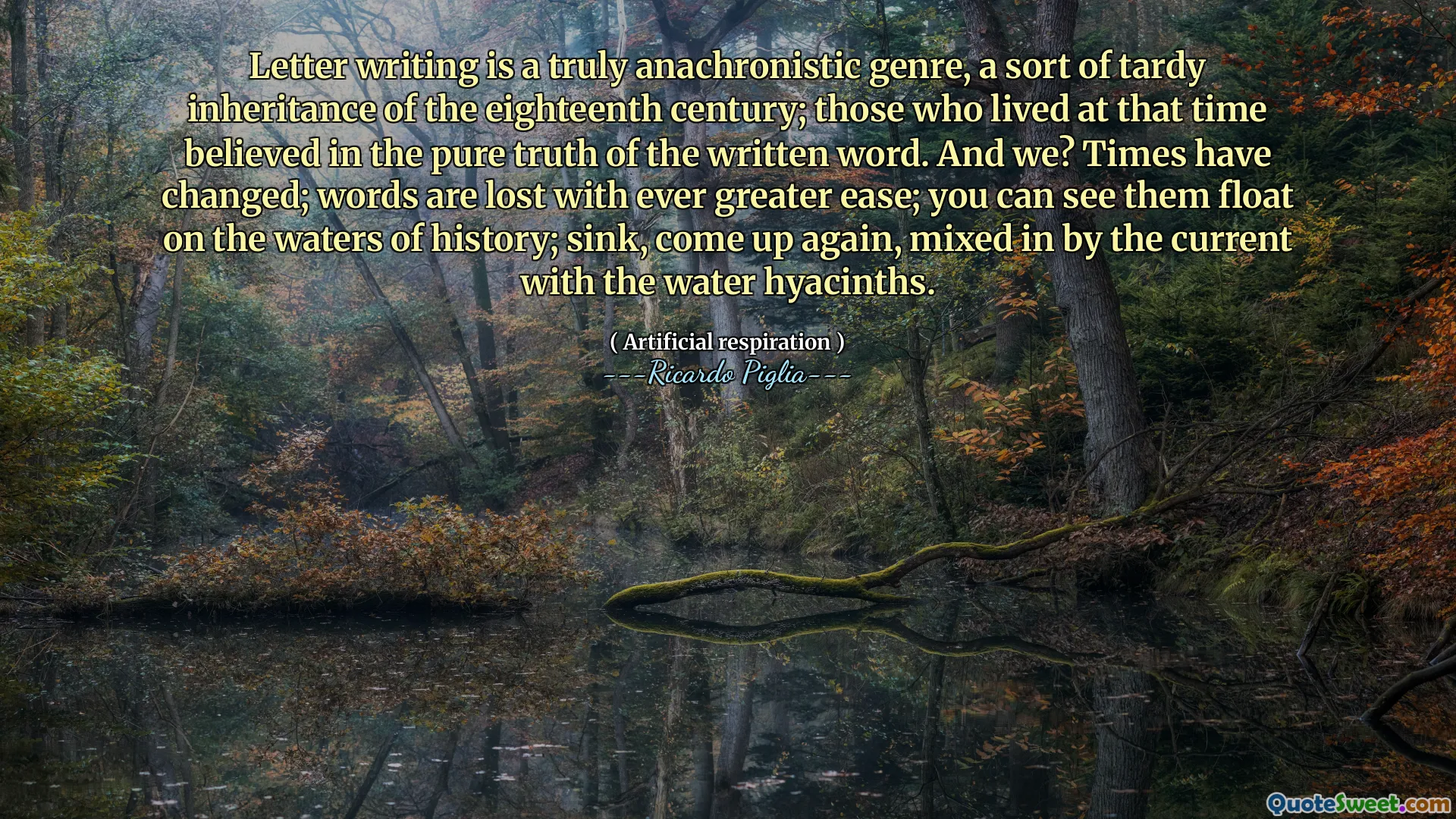
Letter writing is a truly anachronistic genre, a sort of tardy inheritance of the eighteenth century; those who lived at that time believed in the pure truth of the written word. And we? Times have changed; words are lost with ever greater ease; you can see them float on the waters of history; sink, come up again, mixed in by the current with the water hyacinths.
This quote reflects on the evolving nature of written communication and the enduring yet shifting significance of letters as a form of expression. Historically, letter writing was regarded as a sincere and almost sacred act, rooted in the eighteenth century's emphasis on the purity and permanence of the written word. In that era, words carried a weight and certainty that seemed almost intrinsic to the act of writing itself. Today, however, the quote underscores how rapidly words can fade in the modern age—lost in the flood of digital communication and fleeting messages. The imagery of words floating on water, sinking and rising again, illustrates their fragile existence within the ebb and flow of history. It invites us to consider how contemporary modes of communication, like emails and social media, may lack the permanence of traditional letters but are perhaps more immediate and transient. Despite this, the enduring nature of some words and ideas persists, reaching us through the currents of time in unpredictable ways, sometimes resurfacing unexpectedly after years of obscurity. This reflection prompts a meditation on the impermanence of language, the value of meaningful writing, and the evolving relationship between words, memory, and history. It highlights that while the act of letter writing may seem outdated, the human desire to communicate honestly and preserve thoughts remains intrinsic, even if the mediums transform.






